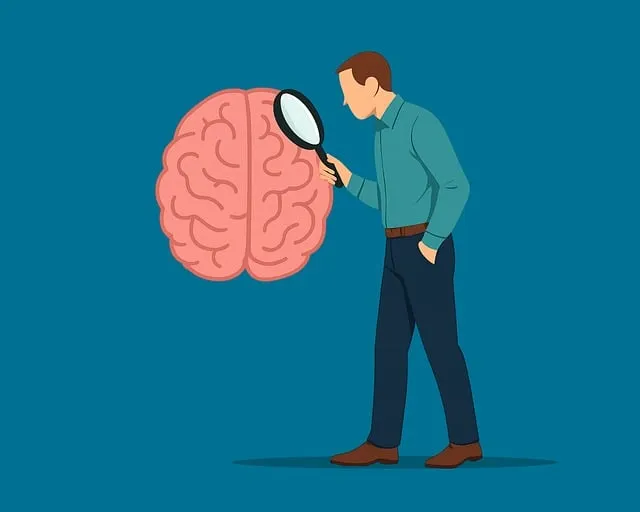Kaiser's inpatient mental health services in Golden provide comprehensive care, teaching effective emotion regulation techniques through evidence-based practices like group therapy, counseling, and mindfulness workshops. This holistic approach enhances emotional well-being, equips individuals with social skills, and builds resilience to navigate life's challenges. While cultural sensitivity and burnout prevention are crucial for sustainability, these services significantly empower patients with healthier coping strategies for improved mental health upon discharge.
Emotion regulation techniques are crucial tools for managing mental health, especially in inpatient settings. This article explores the concept of emotion regulation, highlighting its significance in teaching and mental healthcare. We delve into the role of teaching as a game-changer in inpatient care, focusing on Kaiser’s innovative approach to providing golden opportunities for emotional well-being. By understanding these techniques, we can navigate the challenges and reap benefits, fostering a more comprehensive and effective support system.
- Understanding Emotion Regulation: Unraveling the Concept
- The Role of Teaching in Mental Health Care: A Focus on Inpatient Settings
- Kaiser's Approach: Inpatient Mental Health Services
- Implementing Effective Emotion Regulation Techniques
- Benefits and Challenges: Teaching Emotions in Inpatient Care
Understanding Emotion Regulation: Unraveling the Concept

Emotion regulation is a vital skill that enables individuals to understand and manage their emotional responses effectively. It involves recognizing, accepting, and controlling emotions in a healthy way, ensuring they don’t overwhelm or dictate one’s actions. This concept is crucial, especially for those seeking mental health support, such as patients at Kaiser’s inpatient facilities. By unraveling the intricate web of emotions, individuals can develop inner strength, enabling them to navigate life’s challenges with resilience.
At Kaiser, the focus on mental well-being goes beyond treatment; it encompasses a holistic approach to patient care. This includes implementing community outreach programs and trauma support services, fostering an environment where emotional regulation techniques are not just taught but embraced as a cornerstone of overall health. These strategies empower individuals to transform their lives, ensuring they can thrive even in the face of adversity.
The Role of Teaching in Mental Health Care: A Focus on Inpatient Settings

Inpatient mental health care settings play a pivotal role in teaching individuals effective emotion regulation techniques, especially for those experiencing severe or chronic mental health conditions. Organizations like Kaiser, known for its comprehensive healthcare services, often provide specialized programs tailored to these needs. These programs focus on empowering patients with tools to manage and regulate their emotions, which is crucial for improving overall mental well-being.
By incorporating evidence-based practices, such as confidence-boosting strategies, communication skills training, and social skills development, inpatient facilities can offer transformative experiences. Such teachings not only help individuals gain a deeper understanding of their emotions but also equip them with the necessary social skills to navigate relationships and build supportive networks. This holistic approach to mental health care ensures that patients leave these settings better equipped to handle emotional challenges in their daily lives.
Kaiser's Approach: Inpatient Mental Health Services

Kaiser’s Approach to Emotion Regulation Techniques in Inpatient Mental Health Services
Kaiser, a renowned healthcare provider, offers comprehensive inpatient mental health services that prioritize emotion regulation techniques. Their approach is deeply rooted in evidence-based practices and cultural competency training, ensuring personalized care tailored to diverse patient needs. By integrating Empathy Building Strategies and Compassion Cultivation Practices into their program, Kaiser fosters an environment of safety and support where individuals can learn to manage their emotions effectively.
The inpatient setting allows for intensive interventions and close monitoring, enabling patients to develop resilience in regulating their emotional responses. Through group therapy sessions, individual counseling, and mindfulness workshops, patients gain valuable tools to navigate stress, anxiety, and depression. Kaiser’s holistic approach not only addresses the symptoms but also cultivates long-lasting coping strategies, empowering individuals to thrive even after discharge from inpatient care.
Implementing Effective Emotion Regulation Techniques

Implementing effective emotion regulation techniques is a cornerstone of mental health care, especially for those seeking treatment at inpatient facilities like Kaiser’s mental health services. These strategies empower individuals to manage and understand their emotions, which is crucial for Golden moments of emotional well-being promotion. Trauma support services often integrate self-care practices into their regimens, teaching patients how to identify and process intense feelings in a healthy manner.
By learning these techniques, individuals can navigate life’s challenges with greater resilience. Self-care practices, such as mindfulness meditation and deep breathing exercises, are powerful tools that help regulate emotions and foster emotional balance. These skills not only enhance overall mental health but also prepare individuals to handle stressful situations, ultimately improving their quality of life.
Benefits and Challenges: Teaching Emotions in Inpatient Care

Teaching emotions and emotion regulation techniques in inpatient care, such as those offered by Kaiser’s mental health services, brings a multitude of benefits. Patients often face intense emotional turmoil, and learning to manage these feelings can significantly enhance their recovery journey. By incorporating evidence-based practices, like mindfulness or cognitive behavioral therapy (CBT), inpatient programs can empower individuals to develop healthier coping strategies. This not only improves their overall well-being but also fosters resilience, enabling them to better navigate future challenges outside the clinical setting.
However, there are unique challenges associated with this approach. Inpatient care environments may lack the cultural sensitivity required to address diverse emotional needs. Every patient has distinct experiences and backgrounds, demanding tailored strategies. Additionally, healthcare providers must be vigilant against burnout when consistently supporting patients in intense moments. Balancing these considerations requires a dedicated commitment to both patient-centric care and provider well-being. Incorporating culturally sensitive practices and prioritizing burnout prevention strategies, like regular staff support and self-care initiatives, can ensure that teaching emotions remains an effective and sustainable aspect of inpatient mental health services.
Emotion regulation techniques teaching plays a pivotal role in mental healthcare, especially in inpatient settings. By understanding the concept and implementing effective strategies like those offered by Kaiser’s approach, we can significantly enhance patient care. Teaching emotion regulation not only benefits patients but also challenges traditional practices, highlighting the need for ongoing education and adaptation within the field. Inpatient mental health services, when infused with these techniques, have the potential to foster healing and improve overall well-being, making them a golden opportunity for positive transformation.






